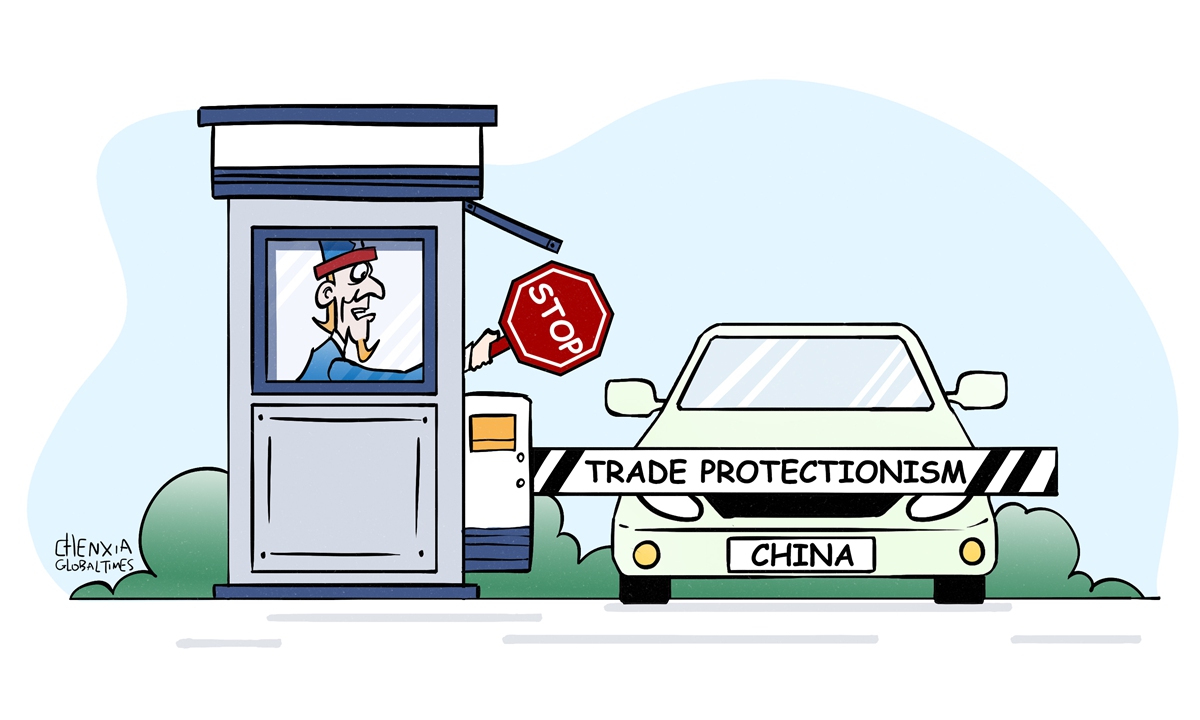US House’s EV tax credit bill another political maneuver during ‘Anti
2024-10-17 00:25:29本站

Illustration: Chen Xia/GT
The US House of Representatives' latest bill on electric vehicle (EV) tax credits that aims to bar US carmakers from working with Chinese EV companies is another political maneuver that could hurt US businesses and consumers, a Chinese expert said on Friday.
On Thursday, the US House narrowly voted to pass a bill restricting EV tax credits for vehicles using battery technology licensed from China. The bill has faced opposition from the White House, the South China Morning Post reported on Friday.
The new bill has fueled sharp partisan divisions in the US, with Republicans arguing that it challenges China's dominance in the EV sector, and Democrats and labor unions warning of job losses and reduced US competitiveness against Chinese firms, according to media reports.
The legislation is reportedly the last act of "China Week" at the US House, during which US lawmakers push for anti-China bills. With more than 20 bills targeting China on issues such as biotechnology, EVs, drones and agriculture, the "China Week" has also been called by many the "Anti-China Week."
"In the US, there's broad and strong agreement on suppressing China's cutting-edge industries, but it's tangled among intricate partisan and industry interests," Xin Qiang, deputy director of the Center for American Studies at Fudan University, told the Global Times on Friday.
Alongside the EV bill, the "China Week" also saw some other contentious bills, such as the Biosecure Act, which seeks to block US federal agencies from working with certain Chinese companies under the guise of "national security."
Responding to the passage of the US Biosecure Act, the Chinese Foreign Ministry said on Tuesday that China firmly opposes the passage of the bill by the US House of Representatives and the discriminatory measures against Chinese companies.
"The US needs to abandon ideological bias, respect the principles of market economy and trade rules, stop advancing that bill, and stop suppressing Chinese companies under various pretexts," Mao Ning, a spokesperson for the ministry, said at a regular press briefing, adding that China will continue working to protect the lawful and legitimate rights and interests of Chinese companies.
文章地址:http://mobile.dalian183.cn/html/362b798876.html (转载请注明出处)
免责声明:本文仅代表作者个人观点,与本网站无关。其原创性以及文中陈述文字和内容未经本站证实,对本文以及其中全部或者部分内容、文字的真实性、完整性、及时性本站不作任何保证或承诺,请读者仅作参考,并请自行核实相关内容。